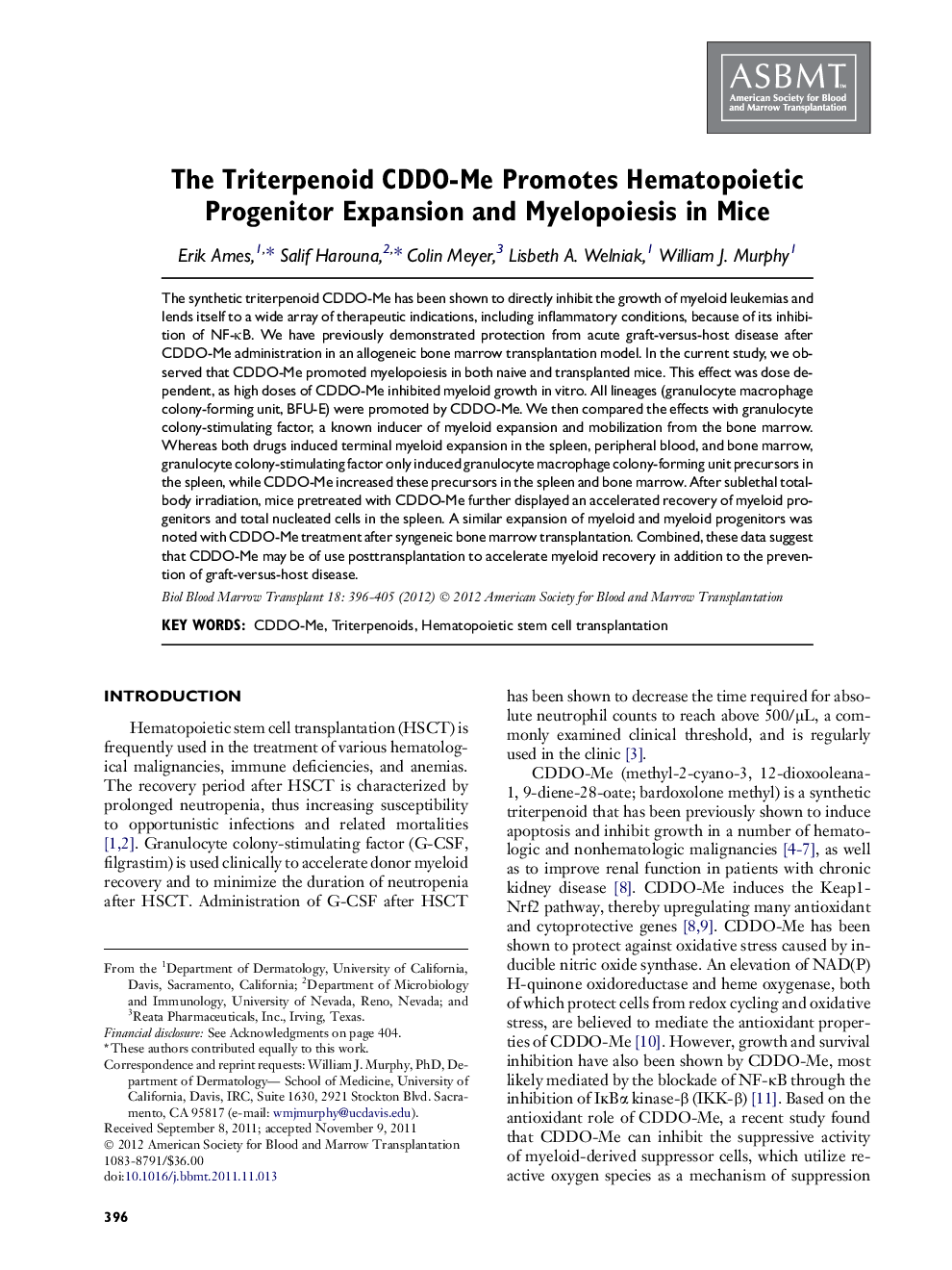| Article ID | Journal | Published Year | Pages | File Type |
|---|---|---|---|---|
| 2102665 | Biology of Blood and Marrow Transplantation | 2012 | 10 Pages |
The synthetic triterpenoid CDDO-Me has been shown to directly inhibit the growth of myeloid leukemias and lends itself to a wide array of therapeutic indications, including inflammatory conditions, because of its inhibition of NF-κB. We have previously demonstrated protection from acute graft-versus-host disease after CDDO-Me administration in an allogeneic bone marrow transplantation model. In the current study, we observed that CDDO-Me promoted myelopoiesis in both naive and transplanted mice. This effect was dose dependent, as high doses of CDDO-Me inhibited myeloid growth in vitro. All lineages (granulocyte macrophage colony-forming unit, BFU-E) were promoted by CDDO-Me. We then compared the effects with granulocyte colony-stimulating factor, a known inducer of myeloid expansion and mobilization from the bone marrow. Whereas both drugs induced terminal myeloid expansion in the spleen, peripheral blood, and bone marrow, granulocyte colony-stimulating factor only induced granulocyte macrophage colony-forming unit precursors in the spleen, while CDDO-Me increased these precursors in the spleen and bone marrow. After sublethal total-body irradiation, mice pretreated with CDDO-Me further displayed an accelerated recovery of myeloid progenitors and total nucleated cells in the spleen. A similar expansion of myeloid and myeloid progenitors was noted with CDDO-Me treatment after syngeneic bone marrow transplantation. Combined, these data suggest that CDDO-Me may be of use posttransplantation to accelerate myeloid recovery in addition to the prevention of graft-versus-host disease.
